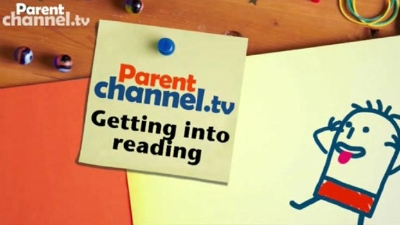 Go to main content
Go to main content
Archive Website of the UK government
Please note that this website has a UK government accesskeys system.
Main menu
Page menu
Parents

Developing reading and writing skills for under fives
In order to make a good start in reading and writing, your child needs you to talk and listen to them. This helps them hear how language is put together into sentences and prepares them to become readers and writers.
Can't see the video?

To play this video you need Adobe Flash Player version 9 or higher on your computer and have JavaScript enabled on your browser. Our Help with video files page gives advice if you are unsure how to do this. The Flash software is free.
Learning in everyday life
Whether you're at home, on the bus, in the shops or at the doctors surgery, there are countless opportunities to help your child to learn. You can do this by talking with them and reading together, plus there are fun ways to develop their writing skills too.
Reading together
Reading stories with your child, if only for 10 minutes a day, helps build important skills as well as capturing your child's interest in books. Books are a rich source of information for your child as they contain words you might not use in everyday conversations. From their earliest days babies enjoy listening to stories and looking at books.
To help your child become a lifelong reader you can:
- spend a few minutes a day telling stories and reading together, and make it fun by choosing books you both enjoy
- talk about the pictures and characters in the books and make up your own stories
- read as you walk down the street and round the shops, pointing out signs and words and talking about them
- buy books as presents and join a local library
Learning about letters
As children grow older they begin to understand more about the sounds of our language and can join in with rhymes, songs and stories. Over time this will help your child develop an understanding that words are made up of different sounds. Soon they will be able to hear these different sounds in words.
Gradually they will learn to match sounds to letters. They use this knowledge when they are reading and writing. To help this learning process you can:
-
sing nursery rhymes and songs together, sometimes pointing to the words in a book
-
play games with sounds, making up silly words that all begin with the same sound (for example the first sound in their name)
-
get your child to spot letters they recognise in words (for example the first letter of their name)
-
look at brochures and catalogues together, pointing out words printed in bold or with unusual fonts
-
play 'I spy', as children get older, to help them listen to the sounds different words begin with
Developing mark-making and early writing skills
Your child will notice adults around them reading and writing and they will want to copy them. From a young age children enjoy experimenting with making marks. The more opportunities your child has to develop large and small movement in their arms, hands and fingers, the better. This will make it easier to make marks with a variety of tools. You can help your child by:
- doing activities like digging, ‘painting’ outdoor surfaces with water and a large brush, sweeping and swishing a scarf through the air in different shapes
- hanging out the washing, using a peg board and picking up grains of rice with fingers, which all help develop the grip needed for writing
- helping them to make marks on paper with their fingers, brushes and crayons
- helping them write labels, birthday cards and invitations
Bookstart - more books for babies and toddlers
Bookstart is a national programme, funded by Sure Start, which aims to promote a lifelong love of books. It works through local organisations to give free packs of books to babies and toddlers, as well as guidance materials for parents and carers.
There are different types of Bookstart pack available for three different age ranges:
- 0 to 12 months
- 18 to 30 months
- three years plus
To find out if there is a Bookstart scheme operating in your area, ask at your local library. If there is a scheme, your baby should receive a pack at the seven to nine month health check with their health visitor. If not, contact your local library.
If there is no scheme operating in your area, you are entitled to a free Bookstart pack. Contact Booktrust, the charity that administers Bookstart, for your pack.
 Facebook
Facebook Twitter
Twitter StumbleUpon
StumbleUpon Delicious
Delicious Reddit
Reddit